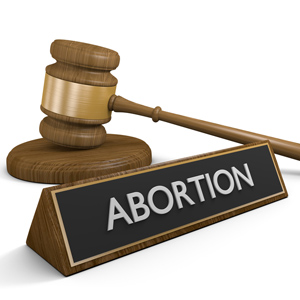Will Supreme Court allow restrictive abortion law to take effect? Some look for clue to Roe viability

Shutterstock.com.
The fight over abortion rights has returned to the U.S. Supreme Court as the justices consider an emergency petition to temporarily block a restrictive Louisiana abortion law from taking effect.
An abortion clinic and two doctors have asked the court to stay a decision upholding the law by the 5th U.S. Circuit Court of Appeals at New Orleans, report SCOTUSblog, the New Orleans Advocate, the Take Care blog, CNBC and Think Progress. The group is seeking a stay, while the Supreme Court considers whether to grant a petition for certiorari.
The Supreme Court’s response to the petition “could tell us a lot more about how the Roberts Court, more conservative since the retirement of Justice Anthony Kennedy last year, might approach abortion cases going forward,” according to SCOTUSblog.
The Louisiana law requires doctors who perform abortions in the state to hold “active admitting privileges” at a hospital within 30 miles of the clinic where they provide abortions. Physicians with such privileges are members of the hospital staff, with the ability to admit patients and provide diagnostic and surgical services.
The state of Louisiana has acknowledged its law is identical to a Texas law struck down by the U.S. Supreme Court in a 5-3 decision in June 2016, the challengers to the Louisiana law write in their emergency petition. Kennedy had joined with the court’s liberals to strike down the Texas law in the 2016 case, Whole Woman’s Health v. Hellerstedt.
But the 5th Circuit had said the facts in the Louisiana case “are remarkably different” than in the Texas case, where the law forced the closure of all but eight of 40 clinics. Only one Louisiana doctor is currently unable to get the needed privileges in the state, affecting, at most, 30 percent of women, “and even then not substantially,” the 5th Circuit said.
The 5th Circuit majority had disagreed with the district court’s conclusion that two other abortion doctors who were turned down for privileges had made a good faith effort to obtain them.
The majority also rejected findings that one abortion doctor would stop performing abortions if the law is enacted, and that the limited hospital privileges obtained by another doctor were insufficient under the law.
“I had not thought that abortion cases were an exception to the coda that appellate judges are not the triers of fact,” said a 5th Circuit dissenter, Circuit Judge Patrick Higginbotham.
In their Supreme Court emergency petition, the challengers say the law would leave only one doctor performing abortions in the entire state, and only one clinic would remain open. “One doctor at one clinic cannot possibly meet the needs of approximately 10,000 women who seek abortion services in Louisiana each year,” the emergency petition says.
The Take Care blog sees the 5th Circuit approach as providing a road map to how the Supreme Court could chip away at abortion rights: “by distinguishing away any decision favorable to reproductive justice and refusing to meaningfully scrutinize any law that affects abortion access or abortion providers.”
The case is June Medical Services v. Gee.



